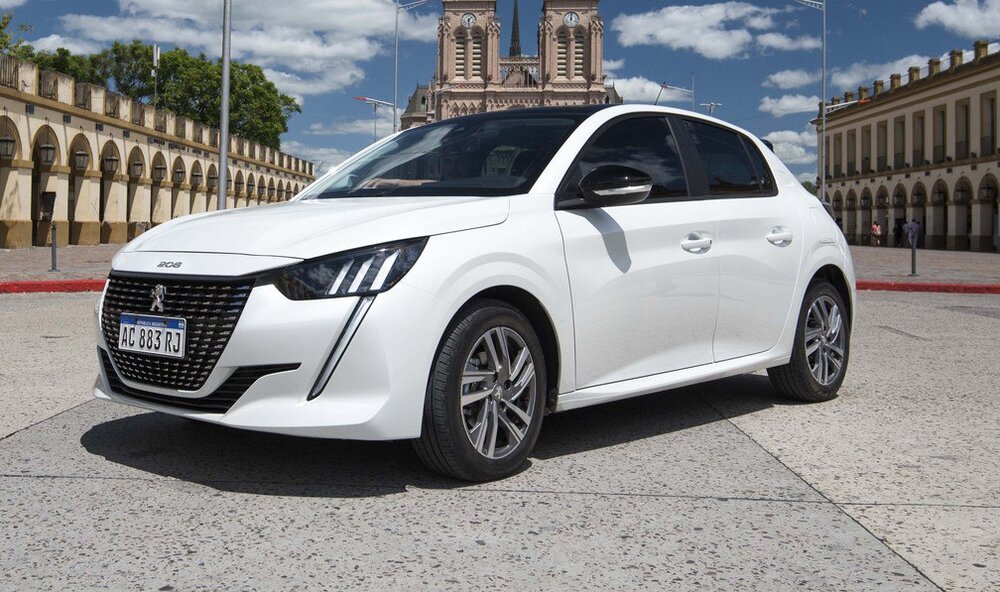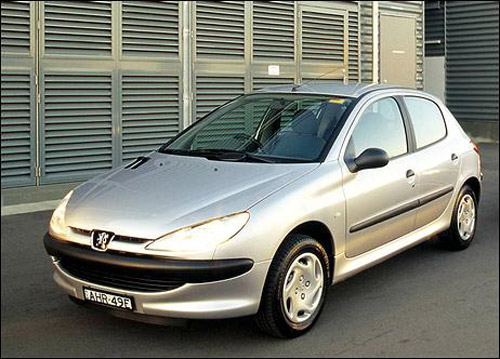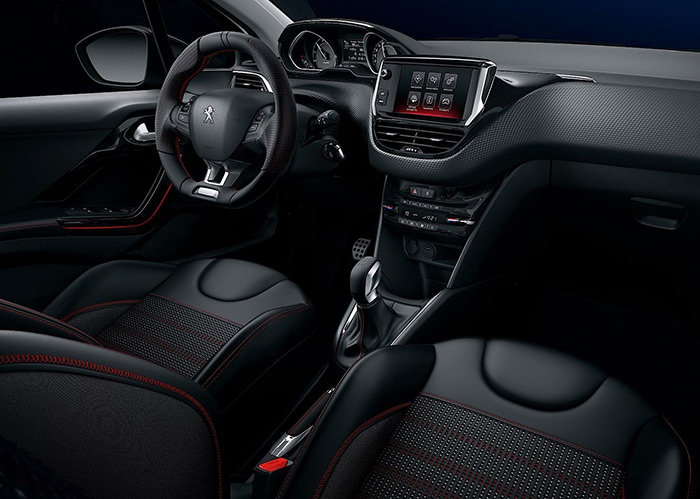Peugeot, often referred to as “Peugeot S.A.,” is a renowned French automotive manufacturer with a rich history dating back to the early 19th century. The company has established itself as one of the world’s oldest and most prominent automobile manufacturers, known for its innovation, style, and a wide range of vehicles. Here is an overview of Peugeot:
Peugeot has its origins in the Peugeot family business, founded by the Peugeot brothers in 1810. Initially, the company focused on manufacturing various products, including coffee mills and bicycles. It wasn’t until 1889 that the first Peugeot automobile, the Peugeot Type 2, was introduced, marking the company’s entry into the automotive industry.Peugeot quickly gained recognition for its innovative approach to automotive engineering. It produced several notable vehicles, including the Peugeot Type 3, which was one of the world’s first gasoline-powered cars. The company’s commitment to innovation was exemplified by the introduction of the all-steel-bodied Peugeot Bébé in 1905.
Peugeot earned a reputation for motorsport success during the early years of auto racing. The company achieved numerous victories in events such as the Paris-Bordeaux-Paris race, solidifying its position as a formidable automotive manufacturer.After World War II, Peugeot expanded its range of cars and introduced models like the Peugeot 403 and Peugeot 404. The Peugeot 404, launched in 1960, was particularly well-received and renowned for its robust construction and reliability.
The Peugeot 205, unveiled in 1983, was a pivotal model in the company’s history. This compact car was celebrated for its nimble handling and stylish design. It played a significant role in strengthening Peugeot’s reputation and sales figures. In more recent years, Peugeot has continued to produce a diverse lineup of vehicles, including compact cars, SUVs, crossovers, and electric models.
Peugeot has been at the forefront of innovation, with a focus on fuel efficiency, hybrid, and electric vehicles. The company has integrated advanced technologies into its vehicles and introduced the “Peugeot i-Cockpit,” a driver-centric interior design aimed at enhancing the driving experience.
Peugeot has a strong global presence, marketing its vehicles in various international markets. The company has been involved in strategic partnerships, such as the merger with Citroën to form the PSA Group, which has subsequently become part of Stellantis, a major global automotive conglomerate.
Peugeot has achieved considerable success in motorsport, notably in the Dakar Rally and the World Rally Championship (WRC). The Peugeot 205 T16 and Peugeot 206 WRC are iconic rally cars associated with the brand’s triumphs in these events.Peugeot is recognized for its unique design language, characterized by sleek lines, a modern aesthetic, and a dynamic appearance. This design philosophy has contributed to the brand’s appeal and recognition.In line with global environmental objectives and changing consumer preferences, Peugeot is committed to the production of electric and hybrid vehicles. This includes models like the Peugeot e-208 and e-2008, which represent the company’s commitment to sustainability.
Peugeot continues to be a key player in the international automotive industry, offering a wide range of vehicles that reflect its commitment to design, innovation, and environmental responsibility. The company’s long-standing legacy and reputation make it a prominent and influential brand in the automotive world.

Some models of Peugeot Automobile Company:
Peugeot has produced a wide range of models throughout its history, catering to various segments of the automotive market. Here are some notable Peugeot models from different eras:
- Peugeot 201 (Peugeot Bébé): This compact car, introduced in 1929, was known for its all-steel monocoque body and affordability.
- Peugeot 403: Produced from 1955 to 1966, the Peugeot 403 was a popular family car known for its robustness and distinctive styling.
- Peugeot 404: Introduced in 1960, the Peugeot 404 was a globally successful model, celebrated for its durability and reliability.
- Peugeot 504: The Peugeot 504, launched in 1968, enjoyed a long production run and was known for its ruggedness and adaptability to various road conditions.
- Peugeot 205: The Peugeot 205, unveiled in 1983, was a pivotal model that redefined the compact car segment. It was highly regarded for its handling and became an iconic Peugeot model.
- Peugeot 206: Introduced in 1998, the Peugeot 206 was a popular and stylish compact car, available in various body styles, including hatchback, sedan, and convertible.
- Peugeot 308: The Peugeot 308, launched in 2007, is a well-received family hatchback known for its efficient engines and modern design.
- Peugeot 508: This mid-sized sedan and later a fastback model has gained recognition for its upscale styling and features.
- Peugeot 3008: The Peugeot 3008, introduced in 2008, marked the company’s entry into the compact SUV segment. It is known for its stylish design and practicality.
- Peugeot 208: The Peugeot 208, introduced in 2012, is a compact city car available with electric powertrains, reflecting Peugeot’s commitment to sustainability.
- Peugeot 5008: The Peugeot 5008 is a larger SUV, offering more space and versatility compared to the 3008.
- Peugeot 108: The Peugeot 108 is a small and economical city car, known for its maneuverability and affordability.
- Peugeot 2008: The Peugeot 2008 is a compact crossover SUV designed for urban and off-road use.
- Peugeot 3008 GTi: For enthusiasts, the Peugeot 3008 GTi is a high-performance version of the 3008 SUV, offering sportier driving dynamics.
- Peugeot e-208: The Peugeot e-208 is an all-electric version of the popular Peugeot 208, designed to meet the demand for electric mobility.

Challenges facing Peugeot Automobile Company:
Some of the key challenges that Peugeot has encountered and continues to address include:
- Regulatory Compliance: Meeting strict emissions and safety regulations in various markets is a significant challenge. Peugeot, like other manufacturers, must invest in research and development to develop vehicles that comply with evolving regulatory standards.
- Sustainability and Environmental Concerns: Increasing consumer demand for electric and hybrid vehicles, as well as stringent emissions targets, requires Peugeot to invest in cleaner and more sustainable technologies while transitioning away from traditional internal combustion engines.
- Technological Advancements: Rapid advancements in automotive technology, including autonomous driving, connectivity, and advanced driver assistance systems (ADAS), necessitate substantial investments in research and development to stay competitive.
- Market Saturation: In mature markets, such as parts of Europe, the market may be saturated, and competition is intense. Peugeot must expand into emerging markets while adapting to different consumer preferences and regulatory landscapes.
- Global Supply Chain Disruptions: The COVID-19 pandemic highlighted the vulnerability of global supply chains. Disruptions in the supply chain, including shortages of semiconductors and other components, can impact production and profitability.
- Changing Consumer Preferences: Consumer preferences are evolving, with a growing demand for SUVs and crossover vehicles over traditional sedans. Peugeot must adjust its product lineup to reflect these changing preferences.
- Labor Relations: Managing complex labor relations issues is a challenge for Peugeot, as is the case for many long-established automakers. Negotiating fair labor agreements and maintaining a productive and satisfied workforce is an ongoing effort.
- Economic and Market Challenges: The automotive industry is cyclical and sensitive to economic downturns. Economic challenges and fluctuations can impact sales and profitability.
- Competition: Peugeot faces competition from both traditional automakers and new entrants in the automotive industry. To maintain market share and profitability, Peugeot must continuously innovate and offer competitive products.
- Cybersecurity: As vehicles become more connected and reliant on software and data, cybersecurity threats are a growing concern. Protecting vehicles and customer data from cyberattacks is a significant challenge.
- Brand Perception: Maintaining and improving brand perception is vital for Peugeot’s success. The company must work to overcome any negative stereotypes or challenges in certain markets and continue to position itself as a reliable and innovative automaker.
- Global Economic and Geopolitical Factors: Factors like trade disputes, tariffs, and geopolitical tensions can impact the global automotive market, affecting Peugeot’s operations in various regions.
Peugeot, as part of the Stellantis group, continues to navigate these challenges by investing in technology, innovation, sustainability, and strategic partnerships to maintain its position in the competitive automotive landscape. Adapting to the changing dynamics of the industry while addressing these challenges is crucial for the company’s long-term success.

The meaning of Peugeot name and logo:
The name and logo of Peugeot have historical and symbolic significance:
1. Name – “Peugeot”: The name “Peugeot” originates from the Peugeot family, who founded the company. It is a French family name, pronounced “poo-ZHO,” with a silent “t” at the end. The Peugeot family has a long history of entrepreneurship, which initially began with manufacturing tools, then coffee mills, bicycles, and later automobiles. The name “Peugeot” reflects the company’s family heritage and its origins in France.
2. Logo: The Peugeot logo is known as the “Lion Emblem” and carries several layers of symbolism:
- Lion Symbol: The centerpiece of the logo is a stylized lion. The lion has been part of the Peugeot identity since the mid-19th century and is a symbol of strength, power, and resilience. It represents the robustness and durability of Peugeot vehicles.
- Historical Roots: The lion emblem has historical significance, dating back to the time of the Lion family. It was said to have been inspired by a meeting of Armand Peugeot (a descendant of the Peugeot family) with a French military officer in 1847. The officer is said to have given Armand Peugeot the idea of using the lion emblem to symbolize the quality of Peugeot’s saw blades.
- Crest and Shield: The lion emblem is often surrounded by a crest or shield, which adds a sense of heritage and nobility to the logo.
The Peugeot lion emblem is one of the most recognizable and enduring symbols in the automotive industry. It not only conveys the brand’s French heritage but also reflects the company’s commitment to producing strong and enduring vehicles. Over the years, the logo has evolved, but the lion symbol has remained at the core of Peugeot’s visual identity, showcasing the brand’s enduring legacy and strong presence in the global automotive market.
Peugeot company at a glance:
Peugeot is a renowned French automobile manufacturer with a long and storied history. Here’s an overview of Peugeot Automobile Company:
- Founding and Early Years (1810s-1900s):
- Peugeot’s roots can be traced back to 1810 when it was founded as a family business specializing in the production of various products, including coffee mills and bicycles.
- The company began manufacturing automobiles in the late 19th century, with the first Peugeot car, the Peugeot Type 3, being produced in 1890.
- Automotive Pioneering (1900s-1930s):
- Peugeot was an early innovator in the automotive industry, introducing features like the first all-steel-bodied car (the Peugeot Bébé) and the first mass-produced car (the Peugeot 201).
- The company gained recognition in motorsport, particularly in the early years of auto racing, with notable victories in events like the Paris-Bordeaux-Paris race.
- Model Diversification (1950s-1970s):
- In the post-war years, Peugeot expanded its range of cars, with the Peugeot 403 and Peugeot 404 becoming popular models. The Peugeot 404 was especially successful, known for its reliability.
- The Peugeot 504, introduced in 1968, was a significant success and remained in production for several decades, becoming one of the company’s iconic models.
- Peugeot 205 and Modern Era (1980s-Present):
- The Peugeot 205, launched in 1983, was a highly influential and successful compact car, known for its stylish design and handling. It played a key role in cementing Peugeot’s reputation.
- In more recent years, Peugeot continued to produce a wide range of vehicles, from compact cars like the Peugeot 208 to SUVs and crossovers like the Peugeot 3008.
- Innovation and Sustainability:
- Peugeot has been at the forefront of innovation in the automotive industry, with a focus on fuel efficiency, hybrid and electric vehicles, and the integration of advanced technologies in its cars.
- The company introduced the Peugeot i-Cockpit, a driver-focused interior design with a compact steering wheel, which enhances the driving experience.
- Global Presence and Partnerships:
- Peugeot has a strong global presence, selling vehicles in various markets worldwide.
- The company has been involved in strategic partnerships, such as the merger with Citroën to form the PSA Group (now part of Stellantis).
- Motorsport Success:
- Peugeot has a history of motorsport success, particularly in events like the Dakar Rally and the World Rally Championship (WRC). The Peugeot 205 T16 and the Peugeot 206 WRC are iconic rally cars.
- Design and Style:
- Peugeot is known for its distinct design language, often characterized by sharp lines and a dynamic, modern appearance. This design philosophy is seen in its current lineup.
- Sustainability and Electric Vehicles:
- Like many automakers, Peugeot is committed to producing electric and hybrid vehicles to meet environmental goals and changing consumer preferences.
Peugeot continues to be a major player in the global automotive industry, offering a range of vehicles with a focus on design, innovation, and sustainability. It has a strong presence in various markets and remains an influential brand in the automotive world.
Read this article : Fiat company

Leave a Reply